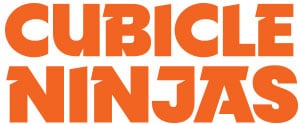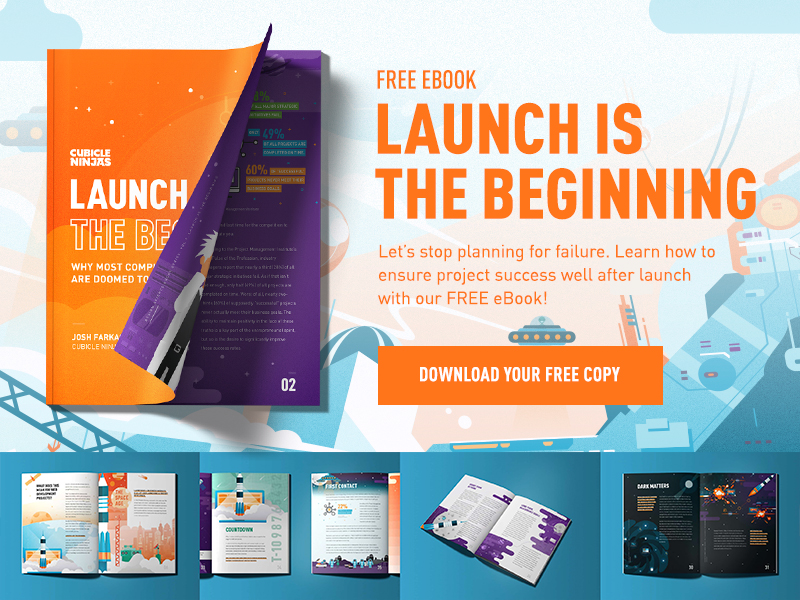
When you’re starting your own business, it seems like everybody wants to add their two cents. With so much conflicting advice, it’s hard to tell who to believe and one can very easily feel discouraged. Luckily, we’ve debunked a few common startup myths so you can hit the ground running. Read on to see our ranking of the 21 startup myths that are 100% false.

1. You Must Fully Understand What You are Doing
One of the worst startup myths is the false idea that you must fully understand every single thing about your business prior to starting. Well, even though it sounds like a good idea, it’s not actually true. Even Elon Musk or Steve Jobs didn’t have a concrete 10-year plan, and both did pretty well for themselves. Having a rough idea to get started is all that’s actually required.
“You can’t plow a field simply by turning it over in your mind.”
― Gordon B. Hinckley
Tip: The best way to learn what your business is to try. Learn from what people love. Remove what they don’t love. Then try again!

2. You Must Have a Complete Business Plan
A business plan is useful to have, but it’s not everything when it comes to starting your business. In fact, it has been argued by some people that needless stressing over your business plan is the last thing you need. While it is good to have some idea of what you are doing, going into intricate detail is not always beneficial. Never trust startup myths that mention business plans as requirements.
“All human plans [are] subject to ruthless revision by Nature, or Fate, or whatever one preferred to call the powers behind the Universe.”
― Arthur C. Clarke
Tip: One book we recommend to help you outline the basics without (the stuffiness) is Business Model Generation.

3. Choosing the Correct Time is Key
People will advise you that you have to choose the correct time in order to start your business, but that’s a complete lie. The best time is now and no other. The longer you delay, the less likely you are to even start the business in the first place. Jump in and learn on the fly.
“How did it get so late so soon?”
― Dr. Seuss
Tip: Cubicle Ninjas was born in 2008, six months before the greatest economic crash in US history. Sometimes bad timing makes you get serious quicker.

4. You Must Have Loads of Cash
People are often told that to start a business, you need to be flush with cash. Like other startup myths, this is true for some, but certainly not for all. There are a number of types of business that you can start with next to no finance. Don’t make life harder for yourself by trying to save money when it’s really not possible.
“Don’t think money does everything or you are going to end up doing everything for money.”
― Voltaire
Tip: Avoid loans or selling a percentage of your business unless 100% necessary. It is far better to bootstrap your business then to leave your job and still have a boss.

5. You Need a Team to Begin
There may be a tendency to believe that you need to delegate jobs and hire staff. Well, even though this may be true for some people, it’s not always the case. Hiring staff at the start could be a disaster as it soaks up limited cash. If you can manage without the extra help, then do so until you are up and running. Avoid startup myths that demand you follow a specific hiring process, as every business is a bit different.
“What you stay focused on will grow.”
― Roy T. Bennett
Tip: Aim to refine your process and product with every sale. When you’re ready to hire you’ll know exactly how to scale what works.

6. Market Research is a Waste of Time
There are actually a number of individuals that believe market research is a complete waste of their time when it comes to starting up a business. This is so wrong that it is scary. Market research allows you to better position your business right from the outset, increasing your chances of success. The key is to focus on the pieces of data that matter. Would knowing your competitions price help? How about their process?
“Highly organized research is guaranteed to produce nothing new.”
― Frank Herbert
Tip: Always be snooping at the competition. Learn from their best ideas. And then create new ideas they’ll be forced to learn from.

7. You Don’t Need a Cash Flow Forecast
One of the most dangerous startup myths is the belief that a cash flow forecast is only important for a struggling business. This is not true. You should have a cash flow forecast established from the time you launch your business and it should also be part of your business plan. By doing so, it allows you to see problems before they occur. Cash is king in business, as it means how many days you can stay in operation.
“To me everything in business boils down to this: do you genuinely care about your customers – or just their cash?”
― Rasheed Ogunlaru
Tip: Most businesses review their cash flow daily. Knowing your numbers allows you to make informed decisions.

8. You Just Need to Work Hard to Succeed
The idea that you will succeed if you just work hard is not entirely true. While it does help, there are so many other facets that hard work just cannot replicate. You need the idea, the plan, the financial skills, and a whole host of other things. Working hard and working long hours is simply not enough.
“Out of clutter, find simplicity.”
― Albert Einstein
Tip: Often, overwork can lead to bad decisions. Work hard, but never believe hard work alone is the solution.

9. Startup Myths Be Damned, You Can Run Your Business Any Way You Like!
While it may sound good to be your own boss, it’s not all as straightforward as you would perhaps like it to be. Yes, you may have the ultimate say, but you own every failure as well. Learn from the mistakes of others who came before. While some startup myths aren’t true, others are scary accurate. Your job is to test each to find what works for you.
“The most courageous act is still to think for yourself. Aloud.”
― Coco Chanel
Tip: Some entrepreneurs believe their idea or industry is so unique that it is unable to learn from the advice of others. This is 100% wrong.

10. You Don’t Need Support
This kind of falls under the previous point, but if you feel that you are your main support, you are doing your growing business a disservice. That’s because you should seek advice and support from friends and family before you start your business. People you trust need to be aware of what you are doing and then they can help you to keep on track.
“My model for business is The Beatles. They were four guys who kept each other kind of negative tendencies in check. They balanced each other and the total was greater than the sum of the parts. That’s how I see business: great things in business are never done by one person, they’re done by a team of people.”
― Steve Jobs
Tip: Always trust but verify.

11. Shortcuts are the Quickest Path to Success
People may try to avoid hiring an expert when starting their business as they feel that they can cut corners and still succeed. Growth Hackers, Marketing Gurus, and SEO Wizards are often selling their specific brand of mysticism. It will often end up being more expensive if you hire someone that isn’t an expert. You will ultimately be required to fix their mistakes and who knows what damage it may have caused to your business by that point.
“An organization that wins through dirty tricks starts to lose the ability to win by doing better work.”
– Paul Graham
Tip: Sure, some growth hack their way to success. But hustle and tricks can only go so far.

12. Data Isn’t Important at the Start
One of the most repeated startup myths is that data doesn’t matter at first. People are of the opinion that they don’t have to worry about data when starting a business as they have nothing to add to it. Well, you can still obtain data from elsewhere that can shape your business from day one, so get anything that is relevant, study it, and see how it benefits you.
“In the age of technology there is constant access to vast amounts of information. The basket overflows; people get overwhelmed; the eye of the storm is not so much what goes on in the world, it is the confusion of how to think, feel, digest, and react to what goes on.”
― Criss Jami
Tip: Gather your customer data. Look at it. And learn from it.

13. You Can Never Scale Too Quickly
The idea that you cannot scale your business up too quickly if it starts off as an amazing success is just wrong. You may very well hit the crest of a wave when starting, but it will almost always dip and if you have started to scale up, then you could cripple your business very early on. Taking your time will be worth it in the end.
“We are products of our past, but we don’t have to be prisoners of it.”
― Rick Warren
Tip: Don’t worry about this one until it happens. Fingers crossed.

14. Trust Your Gut Instinct
Even if you ignore all other startup myths, this one can be hard to avoid. After all, we are often told to go with our gut instinct. However, it may not always be the best idea. You could feel that your business idea is going to work, but you are biased in your opinion. Gut instinct only goes so far and being stubborn and constantly listening to it can end up being a problem.
“My destination is no longer a place, rather a new way of seeing.”
― Marcel Proust
Tip: Weigh your gut against logic, and some input from those you trust, on bigger decisions.

15. Money Can Solve Anything
The idea that money can solve anything when it comes to starting up your business is completely wrong. Just throwing money at an issue doesn’t mean that you’ll come up with a better solution. Often you’re less focused on the specific problem because you have money to spare. Instead, you are simply postponing the solution to the problem, which will make it harder to resolve.
“While money can’t buy happiness, it certainly lets you choose your own form of misery.”
― Groucho Marx
Tip: Be specific about the problems you face. Test them in small scale. Then grow investments as they prove valuable.

16. Sales are Going to Happen Immediately
People think that a new business will generate sales immediately simply because it’s new and people want to try it out. Well, that’s not strictly true and it leads to business owners being disappointed when they don’t get the results they are looking for. Sales takes time and you need to work hard at it because it won’t just come to you.
“Selling without targeting is like sailing without a compass. Think before you invest more time in pursuing the lead.”
― Timi Nadela
Tip: Put sales first above all else. If you hate selling, being an entrepreneur may not be the right fit.

17. A Big Name Franchise Guarantees Success
There is the belief that if you go to start a business by purchasing a franchise from a big name, you will be guaranteed success. This might be one of the easiest startup myths to believe, but beware. Even though a recognizable name goes a long way, you still need to do all of the hard work yourself. You still need to be sure that your area is not saturated with this business as the name above the door won’t do it all for you.
“I can’t give you a sure-fire formula for success, but I can give you a formula for failure: try to please everybody all the time.”
― Herbert Bayard Swope
Tip: Some franchises grow too fast without proving there is enough demand. Be careful of unproven claims of infinite growth.

18. If you are a Franchisee, you are Restricted in your Movements
There is an idea that if you are a franchisee that you need to follow very strict rules at all times. However, this is wrong because even though there will be restrictions, you will be surprised at what you are still allowed to do. Just read the small print before you start to make sure you don’t make any major mistakes.
“You can have peace. Or you can have freedom. Don’t ever count on having both at once.”
― Robert A. Heinlein
Tip: The best way to learn if a franchise is for you is to interview current franchise owners in markets similar to your own. A half dozen conversations should ease your fears.

19. It Will be Cheaper to Start your Own Business
Add this to the list of rarely challenged startup myths. Many believe that it is cheaper to go ahead and start your very own business rather than investing in a franchise. However, the truth of the matter is that both options are going to ultimately cost around the same amount of money, if not more. Remember, with a franchise so much is done for you, whereas with your own business you need to fund each and every part on your own.
“Done is better than perfect.”
― Sheryl Sandberg
Tip: Process matters. It can take years of hard work to refine a scalable process. The real value of a franchise is tapping into this proven knowledge.

20. You Must Be Passionate with a Franchise
This could be slightly surprising, but you don’t have to be too passionate about the franchise that you buy. Your passion might just get in the way. Having an excited demographic is all that matters. There are more than enough people that have a fast food franchise who never eat the stuff.
“My fault, my failure, is not in the passions I have, but in my lack of control of them.”
― Jack Kerouac
Tip: Passion is only valuable when it can be focused to achieve positive results.

21. Having a Business is Riskier Than Having a Job
This may be the most discouraging of startup myths. People argue that starting a business is riskier than having a job. And this appears to be the case when 4 out of every 1,000 businesses (4%) survive the 10-year mark, whereas 300 out of every 1,000 (30%) employees make it past 10 years tenure. Sounds fairly dire right?
Well, that’s not always the case. Even at a steady 9 to 5, your employment is in the hands of your employer, and they could fire you at any moment or the company could close. With a regular job, you have no control. Certain industries even rely on regular layoffs to keep expenses low and employees on their toes. On the other hand, when you run a business it is all up to you.
People often avoid factoring in salary as well. Self-employed business owners are 4x more likely than non-business owners to be millionaires.
“Work stops at sunset. Darkness falls over the building site. The sky is filled with stars. “There is the blueprint,” they say.”
― Italo Calvino
Tip: Risk is relative to your current pain. If you love what you’re doing then why stop? But if you dream of something different, then why not start today?
Looking for more business insights?
Prevent future mishaps by checking out our 10 Rebranding Disasters Marketers Can Learn From, or kickstart your brand and learn How to Define a Clear Messaging Strategy.














